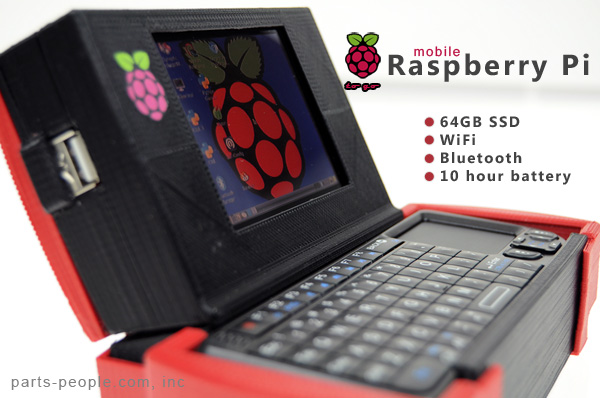1026
Living Room / Re: Parallella, the $99 supercomputer
« Last post by Edvard on January 02, 2013, 03:03 PM »From the specs and interviews with the designer, it's a 64-core Epiphany co-processor sitting next to a dual-core ARM CPU, so I wonder how much is managed by the system, and how much is bare metal. It's got expected virtual speeds up to 50GHz. I know, in modern computing terms, Gigahertz is a trivial benchmark, but for a chip that consumes less than 2 watts, it's impressive.
Apparently though, the object isn't exactly speed, but functionality; an inexpensive platform for learning how to program for parallel computing, almost like a hardware emulator of more serious iron, to make it easier for students to get into parallel and multi-threading concepts now, just when it's starting to grow.
From an interview in Linux User & Developer magazine:
http://www.linuxuser...uting-for-the-masses
Apparently though, the object isn't exactly speed, but functionality; an inexpensive platform for learning how to program for parallel computing, almost like a hardware emulator of more serious iron, to make it easier for students to get into parallel and multi-threading concepts now, just when it's starting to grow.
From an interview in Linux User & Developer magazine:
http://www.linuxuser...uting-for-the-masses
...
LUD: One of your target markets for the Parallella is education, much like the Raspberry Pi. How important is it that universities teach the next generation of programmers to harness the parallel processing capabilities found in modern hardware?
AO: I think it’s a huge challenge and problem right now. I mean, everybody knows that the future’s parallel. What GPUs are showing, and what we are showing, is that parallel’s not even the future – it’s now. There are massively parallel systems right now that could give a huge boost to applications, but there’s nobody who has the energy and the know-how to rewrite a lot of applications for that.
In the future, it’s just going to get worse. Single-threaded processors are saturating, and I think there is agreement on that, so you need to go to heterogeneous computing, and to do that you need to educate from scratch all the new programmers who come out. The curriculum needs to change immediately, because we’re losing time.
All the people out there who are experts at single-threaded programming and who maybe haven’t taken the plunge to parallel programming, they need to be educated and retrained and gotten up to speed. It’s a big context switch for the mind, to go from serial to parallel programming, and really the only way to get fundamentally higher speed-ups is to rewrite your program code from scratch. There’s really no magic bullet.
...

 Recent Posts
Recent Posts






